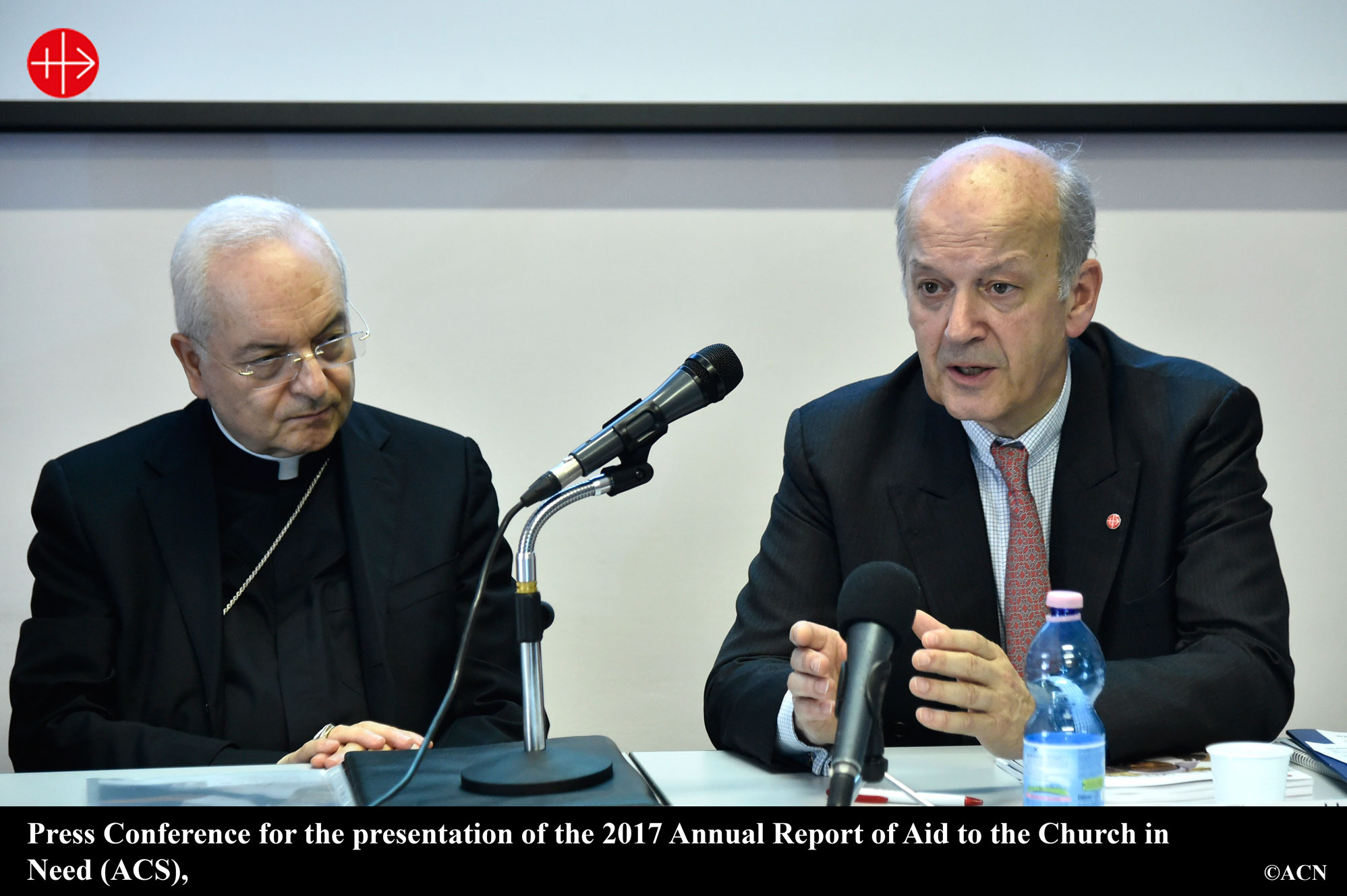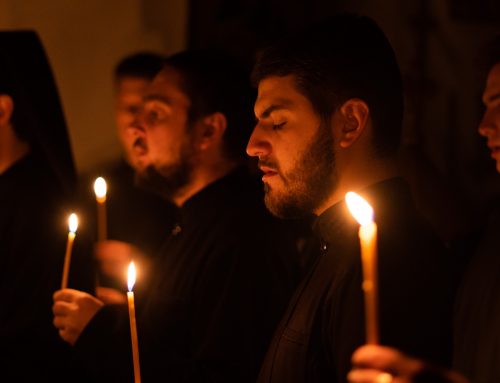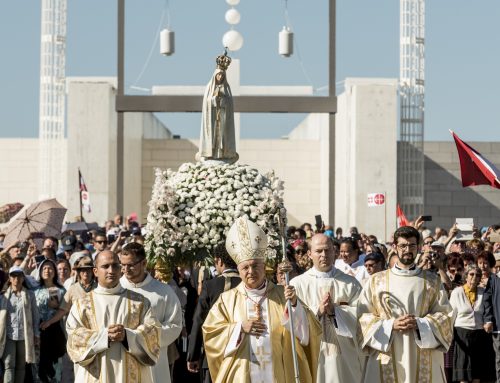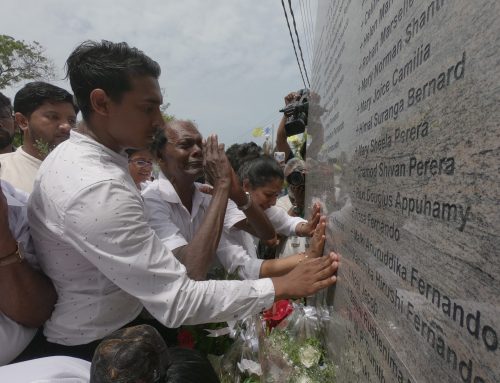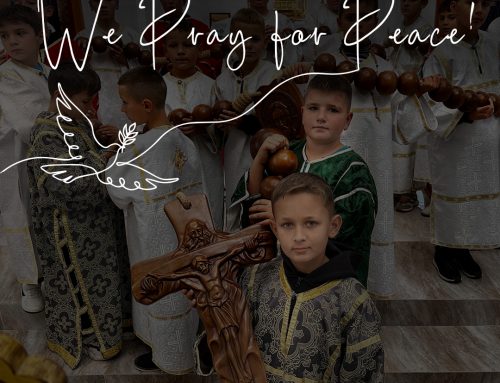“From houses to churches” – Report of ACN’s main activities in 2017
Aid to the Church in Need’s (ACN) annual activity report for 2017 was presented on 4 July 2018 in Rome. ACN’s international director, Thomas Heine-Geldem was present alongside other ACN representatives, including Cardinal Mauro Piacenza, major penitentiary of the Vatican’s Apostolic Penitentiary and President of ACN international.
Cardinal Piacenza, outlining the history of the foundation in 1947, recalled that the idea of Pius XII was to have a work that dealt with the miseries caused by the Second World War “by not discriminating against anyone and not even the former executioners “, and a work was created with” personnel more and more specialised, but not bureaucratised “.
“We have not – says Cardinal Piacenza – become a sort of organization of solidarity. This has remained a work of the Church, a pastoral work.” Thomas Heine-Geldem outlined the guidelines of the foundation: loyal to the Pope, at the service of the cause of evangelisation, committed to the persecuted Church and guardian of the generosity of our benefactors.
ACN’s main role is pastoral work, along with humanitarian aid. Although ACN provides practical help for persecuted Christians, the first priority is always to give pastoral support.
ACN has 23 international offices and supports projects virtually anywhere in the world, excluding the rich first world of Western Europe, North America and Australia. Most of ACN’s aid projects are in Africa, followed by Asia, Latin America, Eastern and Central Europe, and the Middle East. In general, 32.8% of the projects were destined for reconstruction, 15.7% for emergency aid, 15.4% for Masses, 12.1% for training, 9.6% per cent for catechesis.
After the so-called Arab spring of 2011, there has been an increasing trend of aid projects to the tortured area Middle East region. On a per country basis, Iraq was the greatest beneficiary of ACN projects, then India, Syria, Ukraine, Brazil and the Democratic Republic of the Congo. The 2017 report of ACN’s activity is a moving portrait of a reality that is hard, but which is also full of hope. Although pastoral support is a priority, there are exceptional cases such as the Iraqi one, in which pastoral support must exceptionally be replaced by the priority for humanitarian aid.
In terms of where most of the money is spent, Africa again took the lead, followed by the Middle East, which Heine-Geldem said was the result of a concrete decision by ACN to provide “exceptional” support to the region to help Christians remain there… “If Christians are not helped to stay there, they will be forced to leave,” he said, adding that “if we don’t have Christians in the Middle East, there is no need to help with pastoral work.” There were 41 projects funded in Iraq and 143 in Syria.
Most of ACN’s funding in Iraq is going toward the Nineveh Plains Reconstruction Project, and providing spiritual support through Masses, formation and catechesis, as well as food and transport. The reconstruction project, Heine-Geldem said, has also helped bring different Christian rites in Iraq together and has allowed them to interact in a way that was not typical in the past. Thus, the Marshall plan for Iraq was first of all aimed at the reconstruction of war-damaged homes. But now it’s time to think about churches too. For this reason, the goal of 2018 is to move “from houses to churches”… and it’s not just a slogan.
In Syria, which is second on the list of Middle Eastern aid recipients for ACN, most of the funding still comes in the form of basic humanitarian aid since the country is still at war. “We still have war, we still have uncertainty, and people still need emergency help in order enable Christians there to remain or to entice them to return,” Heine-Geldem said, reiterating that the organization’s main priority is to help Christians stay in their home country. “This is not a political statement about immigration, but it is our vocation to do that,” he said, explaining that from even from a geopolitical view, they don’t want the area to become “totally Christian free.” “Christians are a good backbone of society,” he said, noting that many Muslims have told him Christians are needed in the Middle East, because they form the majority of the middle class, and are educated.
In terms of 2018, Heine-Geldem said Syria and Iraq will continue to be a priority, as will the religious freedom report ACN publishes annually, which will be released in November. Additionally, India will also be a key focus, with particular attention for Catholics who are members of the “Dalit” class, which is the lowest in the caste and whose members are considered “untouchable” and less than human. These people are “oppressed and neglected by the system,” and they also face increasing religious persecution from the amplified presence of Hindu extremists, Heine-Geldem said, noting that ACN recently launched a campaign to “open the eyes” of the world to what is happening on the ground. “From what I’ve seen, they really deserve our help. It is a very serious situation.”

